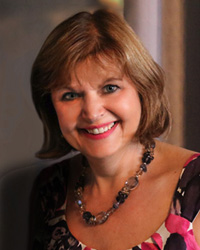
Barbara McClung, Aesthetic Realism associate, writes:
What woman hasn’t cursed herself for something she said or did in a relationship with a man she cared for, and later vowed to be different? Who hasn’t felt, “If only I had it to do it over”? Aesthetic Realism shows that love is a subject to be studied just like any other subject! And we can learn from our mistakes, as consultant Carol Driscoll shows courageously in issue 1714 of The Right of Aesthetic Realism to be Known. She writes:
Once, I wanted to sweep under the rug every mistake I’d made in love. I tried to fix all the blame on men, but I was very troubled, feeling, “Why does every relationship end like this? I must be doing something wrong.” Then, in a class early in my study of Aesthetic Realism, Eli Siegel asked me, “What is that which every person finds difficult? We all,” he said, “have a sense that we may not have been perfect.” And he asked whether I thought we should try to know our mistakes fully “or skip along and forget them.” He continued:
Aesthetic Realism thinks that criticism of oneself is the kindest thing one can have for oneself. The more we see a mistake fully, the lighter we feel. A mistake should be seen as fully as a painting.
Women need to know that our biggest mistake, the chief interference with our ability to love truly, is our desire to have contempt, to build ourselves up through lessening other people and things. And contempt takes many forms. The purpose of love is to like the world—not to have a victory over it.
My study of Aesthetic Realism enabled me to look critically at my mistakes in love, to understand why I made them, and to learn from them. The self-respect and happiness this has made for are tremendous. >>Read Carol Driscoll’s complete paper